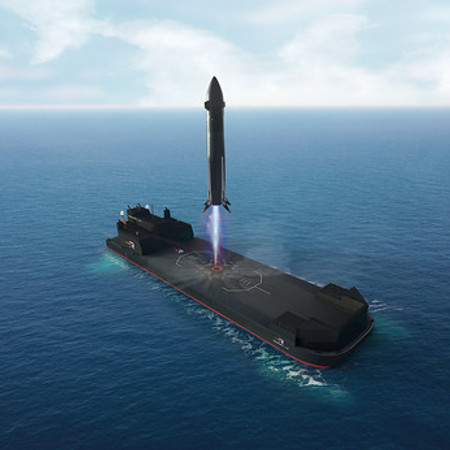Air Force won’t land rockets on a Pacific island as part of its program to test point-to-point rocket cargo delivery
Faced with loud opposition from activists groups, the Air Force has decided it will not land rockets on Johnston Atoll in the Pacific island as part of its program to test point-to-point rocket cargo delivery.
The service had chosen Johnston Atoll, an unincorporated U.S. territory about 700 nautical miles southwest of Honolulu, for testing a program using rockets to rapidly deliver tons of cargo around the globe. The Air Force had announced in the Federal Register in March that it was undertaking an environmental assessment for the construction of two rocket landing pads on the atoll. It anticipated issuing a draft assessment by April, but publication was delayed as opposition to the plan by environmental groups surged. A petition calling for the Air Force to abandon the plan had garnered 3,884 signatures as of Wednesday.
…The Pacific Islands Heritage Coalition, which launched the change.org petition, said in a March 13 news release that building the launch pads on Johnston “only continues decades of harm and abuse to a place that is culturally and biologically tied to us as Pacific people.”
I wonder if this coalition included many local residents. I have doubts. This complaint sounds like something that comes out of the racist anti-white DEI offices in many American colleges.
This decision doesn’t kill this program, but eliminates this island as a test landing site, which means its residents won’t benefit from the development the program would have brought them.
Faced with loud opposition from activists groups, the Air Force has decided it will not land rockets on Johnston Atoll in the Pacific island as part of its program to test point-to-point rocket cargo delivery.
The service had chosen Johnston Atoll, an unincorporated U.S. territory about 700 nautical miles southwest of Honolulu, for testing a program using rockets to rapidly deliver tons of cargo around the globe. The Air Force had announced in the Federal Register in March that it was undertaking an environmental assessment for the construction of two rocket landing pads on the atoll. It anticipated issuing a draft assessment by April, but publication was delayed as opposition to the plan by environmental groups surged. A petition calling for the Air Force to abandon the plan had garnered 3,884 signatures as of Wednesday.
…The Pacific Islands Heritage Coalition, which launched the change.org petition, said in a March 13 news release that building the launch pads on Johnston “only continues decades of harm and abuse to a place that is culturally and biologically tied to us as Pacific people.”
I wonder if this coalition included many local residents. I have doubts. This complaint sounds like something that comes out of the racist anti-white DEI offices in many American colleges.
This decision doesn’t kill this program, but eliminates this island as a test landing site, which means its residents won’t benefit from the development the program would have brought them.

